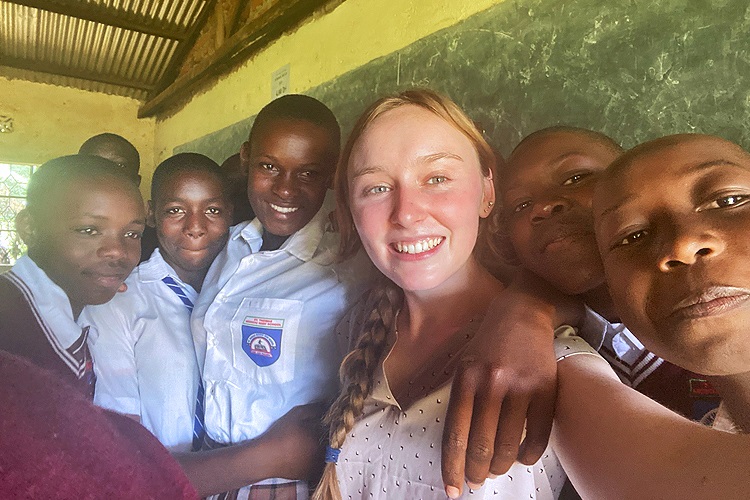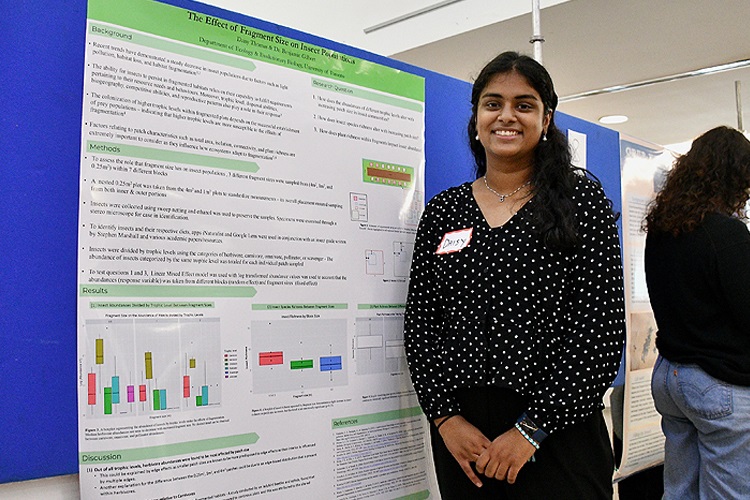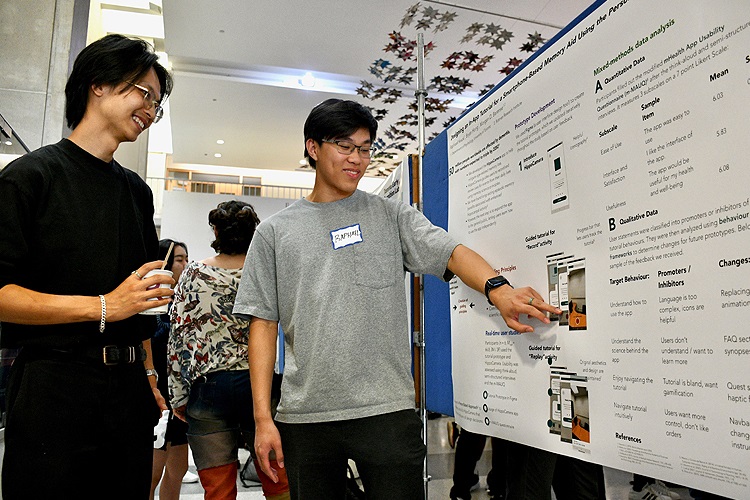What challenges do adolescent girls face in rural Kenya when it comes to menstrual health management and how does it affect their academic performance? What effect does habitat fragmentation have on insect populations? How can we improve upon an existing app to make it more accessible and usable?
These are just a few of the questions that students investigated while participating in the Research Opportunities Program (ROP) and the Research Excursions Program (REP) this past summer. Both initiatives provide second- and third-year undergraduate students with the opportunity to take their learning from the classroom to the real world by joining their instructor’s research project either locally or abroad.
“Sometimes, when students study theory or concepts in the classroom, it can be very abstract," says Ivan Bondoc, an assistant professor with the Faculty of Arts & Science’s Department of Linguistics and ROP student supervisor. "By participating in a research opportunity, students can make connections between what we’re learning in the classroom and the research they’re doing. It’s a real joy to see students engaging with the work, deepening their understanding of the current state of the field and the research process, and even coming up with follow-up studies to build on the research."
The ROP and REP projects culminated at the Undergraduate Research Poster Fair last month, where students presented their research to more than 200 people. Meet a few of the participating students below.
The Effect of Challenges in Female Reproductive Health in Rural Kenyan Schools on Adolescent Girls’ Academic Participation and Performance

There are a plethora of products and brands to choose from when it comes to managing menstruation in Canada — from disposable products like tampons and pads to reusable ones like menstrual cups or period underwear. However, as Caitriona Federico learned this summer, many people around the world do not have the luxury of choice when it comes to managing their period.
It’s one thing to sit and read about something in a textbook, it’s an entirely different thing to go research and meet people who have different life experiences. I feel like I learned so much from my time being there.
Federico, a third-year global health student and member of Victoria College, travelled to rural Kenya to learn more about the challenges adolescent girls encounter and how it impacts their academics. She found that the lack of access to menstrual products and private spaces to wash up led to discomfort, distraction and self-esteem issues — which ultimately impacted their ability to concentrate on their studies and keep up with their peers.
Federico found that the knowledge she gained during her REP helped to bring a new perspective to her studies. “I’m currently taking a class in global health and human rights and I’m able to draw so much from this experience. It’s one thing to sit and read about something in a textbook, it’s an entirely different thing to go research and meet people who have different life experiences. I feel like I learned so much from my time being there.”
The Effects of Habitat Fragmentation on Insect Populations

Human activity has broken many wild habitats into smaller, more isolated fragments. What effect does this fragmentation have on the animal species living in those habitats? Daisy Thomas, a third-year ecology and evolutionary biology student and member of St. Michael’s College, was interested in finding out.
I was also able to learn how to use statistical software and the different strategies used to study the environment, which I think will be helpful for my future academic career.
Thomas spent her summer just north of Toronto at the Koffler Scientific Reserve, where she investigated the effect of fragment size on insect populations and how different trophic levels — or a species’ position in the food web — respond to habitat fragmentation. An insect’s ability to persist within a habitat depends on their ability to meet their resource needs, but when habitats become fragmented, their access to sufficient prey populations may be impacted. Thomas examined three fragments of varying sizes and found that the abundance of herbivorous insects increased in the smallest fragment.
During her REP, Thomas gained valuable skills and experiences. “I enjoyed doing field research. Being out in the environment and collecting samples was really interesting. I was also able to learn how to use statistical software and the different strategies used to study the environment, which I think will be helpful for my future academic career.”
Designing an In-App Tutorial for a Smartphone-Based Memory Aid Using the Person-Based Approach

Last year, U of T researchers published a study demonstrating that their new smartphone application, HippoCamera, helped to significantly improve memory recall. While the benefits of the app are clear for people with memory impairment, in its current stage, the app requires a researcher to be present to explain to users how to use the app and the science behind how it works.
I’m interested in making tech applications or interventions for some sort of health issue, so this research opportunity was right up my alley.
This summer, Raphael Kwok, a second-year neuroscience and laboratory medicine and pathobiology student, and member of St. Michael’s College, worked to improve the HippoCamera app by developing a tutorial that would teach users how to use the app independently. He identified target behaviours that the tutorial should accomplish, designed a prototype, tested the first iteration of the tutorial on real users and received feedback on improvements that can be made for future prototypes. After completing the ROP course, Kwok secured a work-study placement with the lab so he can continue fine-tuning the app.
Although the topic of this ROP project diverges from Kwok’s field of study, it aligns with his personal and professional interests. “I’m interested in making tech applications or interventions for some sort of health issue, so this research opportunity was right up my alley.”
The Research Excursions and Research Opportunities Programs provide a variety opportunities for Arts & Science students to participate in research during their undergraduate studies.

